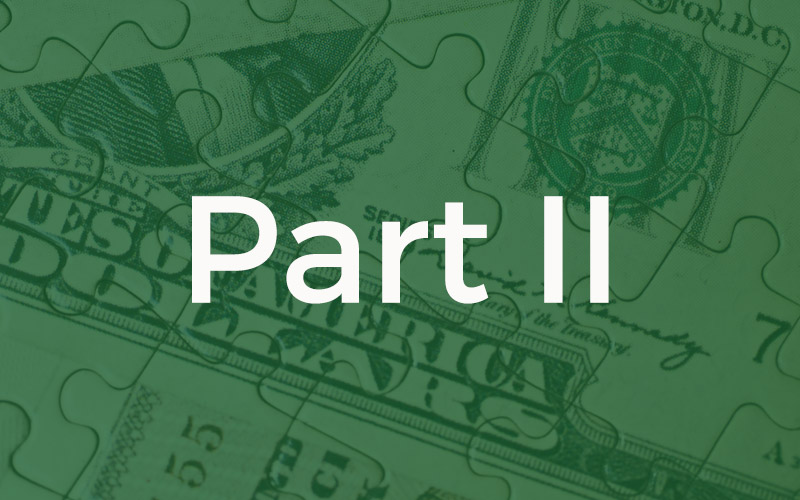
A Basic Guide to Consumer Bankruptcy Part II
This post continues the overview of consumer bankruptcy. For a full overview of individual bankruptcy, please see Part I of this series. Today, we are discussing Chapter 13 bankruptcy.
Chapter 13
The alternative to filing under Chapter 7 is to file under Chapter 13. Chapter 13 is a reorganization bankruptcy designed for debtors with regular income who can pay back at least a portion of their debts through a repayment plan. Some debtors choose to file for Chapter 13 bankruptcy because it offers benefits that Chapter 7 bankruptcy does not (such as the ability to catch up on missed mortgage payments or remove unsecured junior liens from your house).
Filing for Chapter 13 bankruptcy allows you to keep all your property. In exchange, you pay back all or a portion of your debts through a repayment plan (the amount you must pay back depends on your income, expenses, and types of debt). Typically, Chapter 13 bankruptcy is for debtors who can afford to make monthly payments to get caught up on missed mortgage or car payments or pay off non-dischargeable debts, such as alimony or child support arrears.
The process discussed in Part I of this series for Chapter 7 bankruptcy is also followed to begin a Chapter 13 bankruptcy, except a Chapter 13 debtor files a repayment plan with the petition. A plan must be submitted for court approval and must provide for payments of fixed amounts to the trustee on a regular basis, typically biweekly or monthly. The trustee then distributes the funds to creditors according to the terms of the plan. A Chapter 13 debtor is entitled to a discharge upon completion of all payments under the Chapter 13 plan, so long as the debtor has also completed the attached conditions. Generally, the discharge releases the debtor from all debts provided for by the plan or disallowed, except for certain debts referenced in 11 U.S.C. § 1328.
Individuals have the right to file bankruptcy without an attorney. However, filing for bankruptcy can be a very complicated process. Here at TLGNWA, we are equipped to help you avoid common pitfalls when filing for bankruptcy. Call 479-316-3760 to arrange a free initial consultation.
References:
- United States Courts, Chapter 7 & 13 Bankruptcy Basics, http://www.uscourts.gov/services-forms/bankruptcy/bankruptcy-basics/chapter-13-bankruptcy-basics
- Cathy Moran, Bankruptcy in Brief, https://www.bankruptcyinbrief.com/chapter13/
Disclaimer: The Law Group of Northwest Arkansas PLLC (TLGNWA) provides general information about a variety of legal issues on this website as a public service. Information contained herein should not be considered legal advice on any specific matter. The use of information and reference links contained in this website do not constitute contractual, de facto, implied or any other form of attorney-client privilege or relationship. TLGNWA is not responsible for the use of information, forms, links, or documents contained in this website.
Due to the frequency and speed of changing laws, no guarantee is made as to the current validity or applicability of the information contained herein. Though we try to update information often, we recommend that readers with questions investigate current law or contact TLGNWA directly through our contact form or by calling (479) 334-3411.
